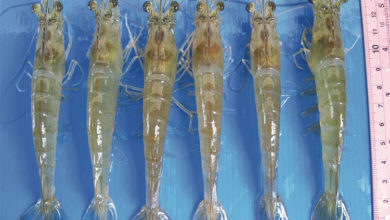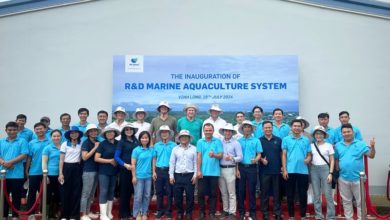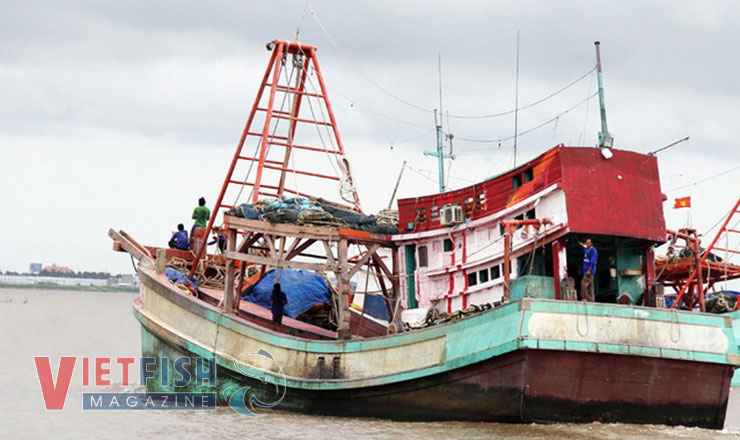Hậu Giang: Farming snakehead in in-pond raceway bring high profit
The in-pond raceway system has been widely applied in snakehead farming by farmers in Phụng Hiệp district of Hậu Giang province, with high profit being earned. This year, high tide has created favorable conditions for seafood farmers, especially those related to the in-pond raceway system which brings in huge profit.
Farmer Lê Văn Hoàng, in Kinh Cùng town of Phụng Hiệp district, owner of a snakehead in-pond raceway system said that he had learnt techniques and experiences of snakehead farming models and realized that the in-pond raceway system took little amount of time, cost few amount of money, was easy to take care of and could use feed available during the flood season. He decided to start this model with three raceways filled with 120kg of snakehead juveniles.
He said the fish weighed up the harvest size after three months of stocking. He harvested 2.4 tons of snakehead from the three raceways, sold them at 35,000 dong/kg, and earned 84 million dong. After minusing production cost, he got 43 million dong profit.
He added that it took about 1.6 kg of feed to produce 1 kg of snakehead. An in-pond raceway is a flow-through system, thus, farmers do not have to replace water or add lime to settle the pond, resulting in low production cost. Besides, the snakehead price rarely fluctuates, especially during the dry season when the fish is in short supply, it can be sold at 40,000-45,000 dong/kg to traders.
He has now twelve raceways with 300kg of snakehead broodstock, which has been growing up well and is forecasted to bring in higher efficiency and profit than the last crop.
VFM






